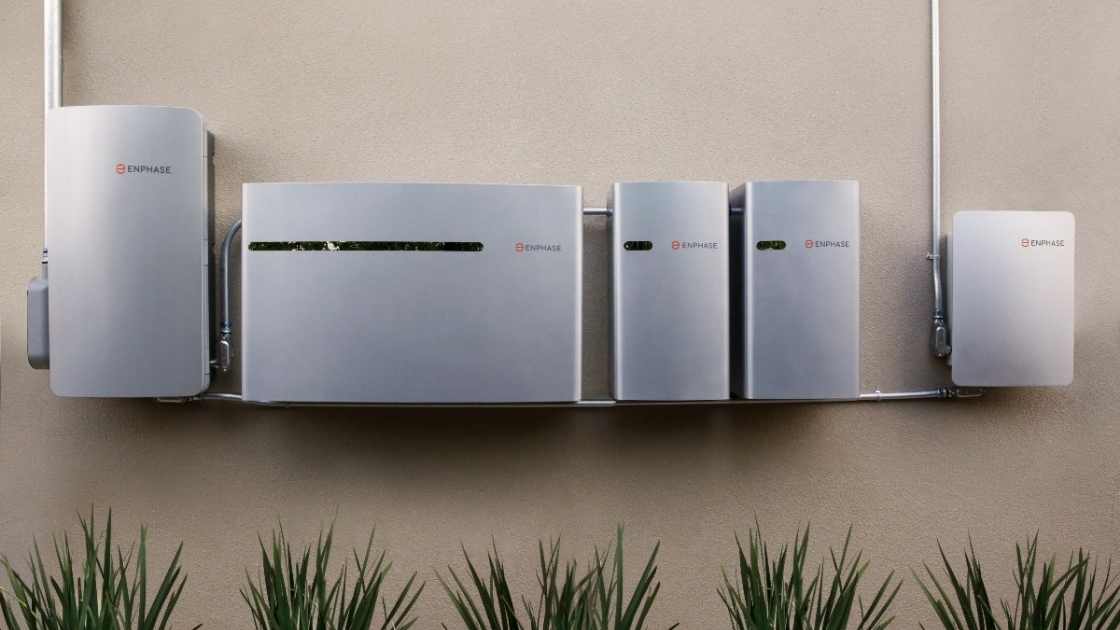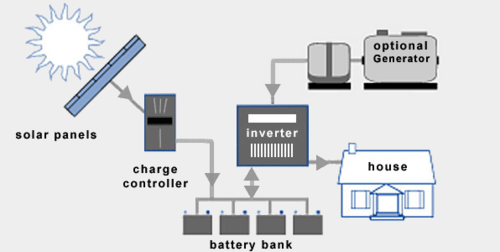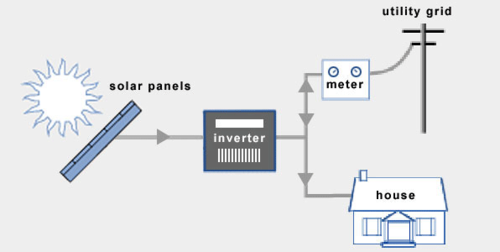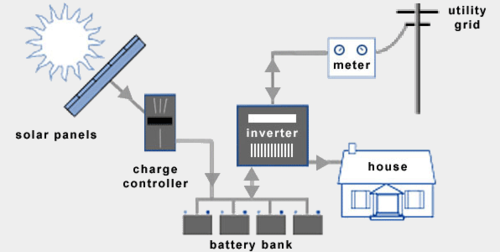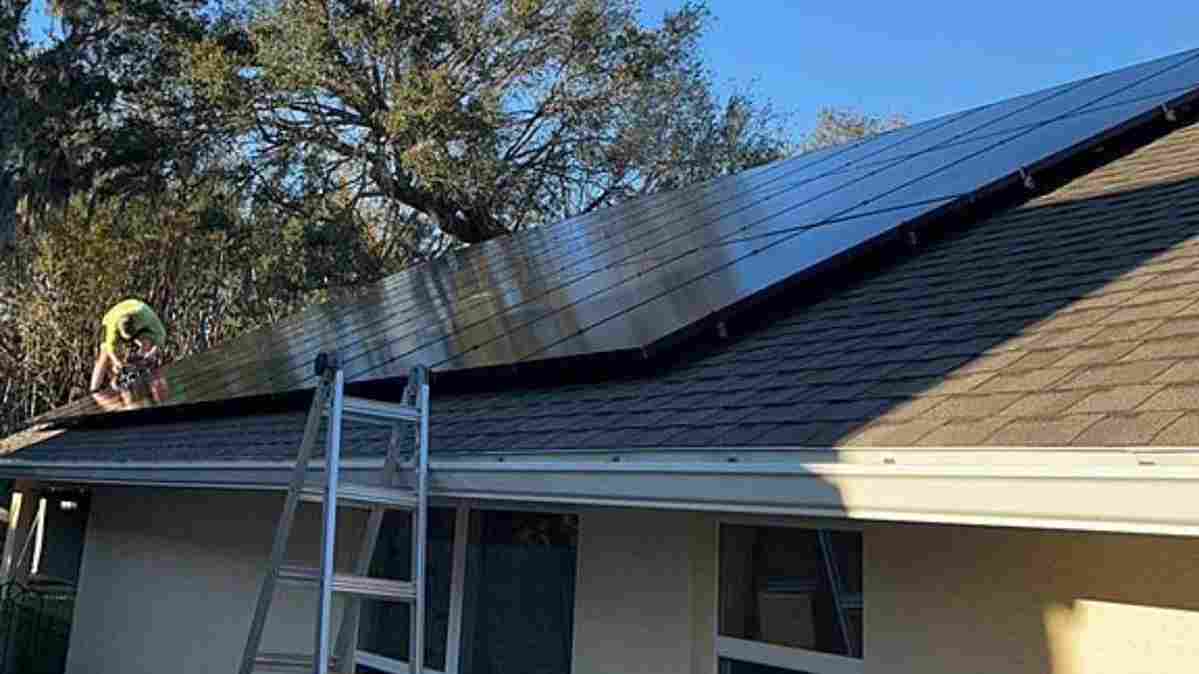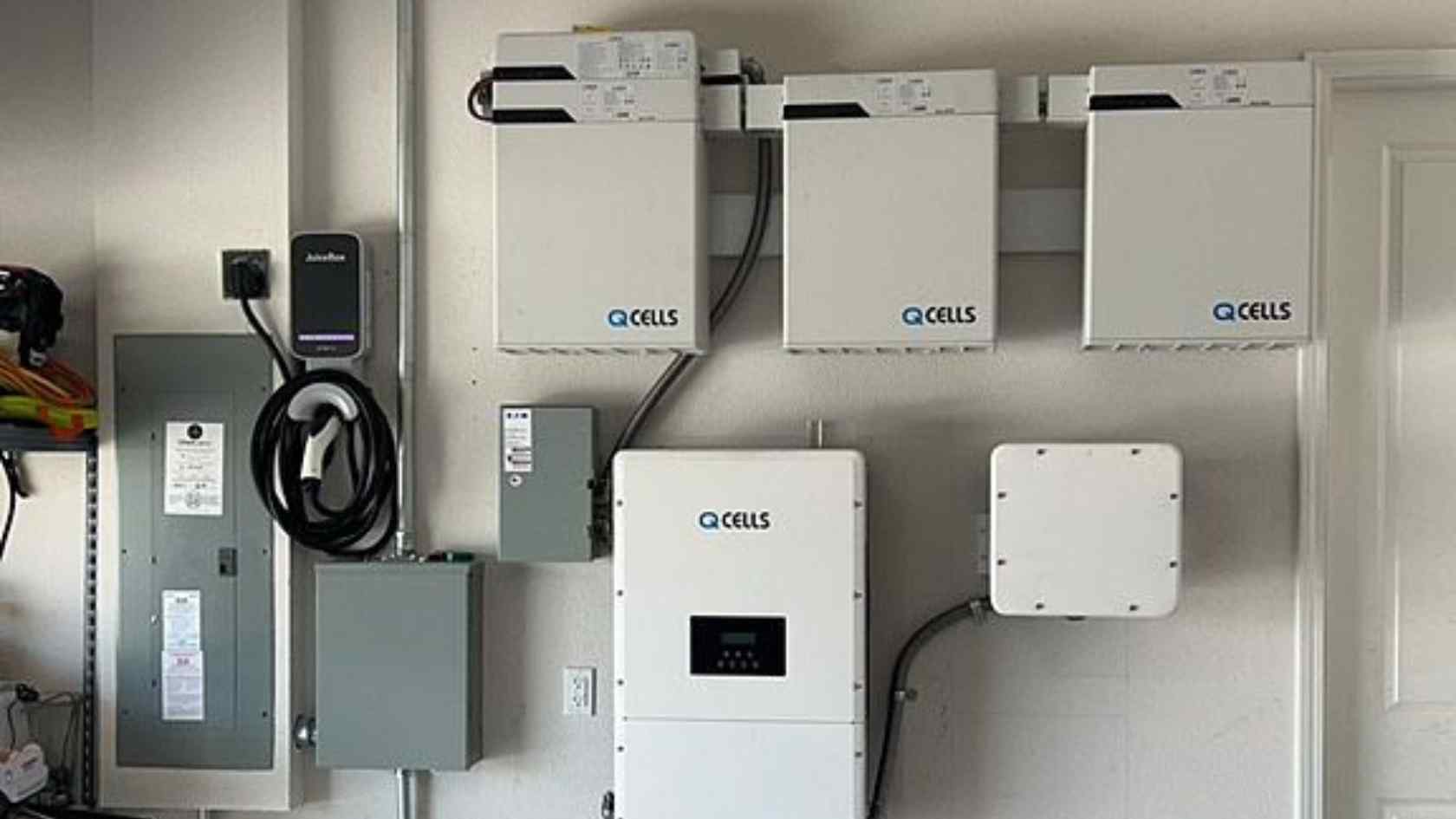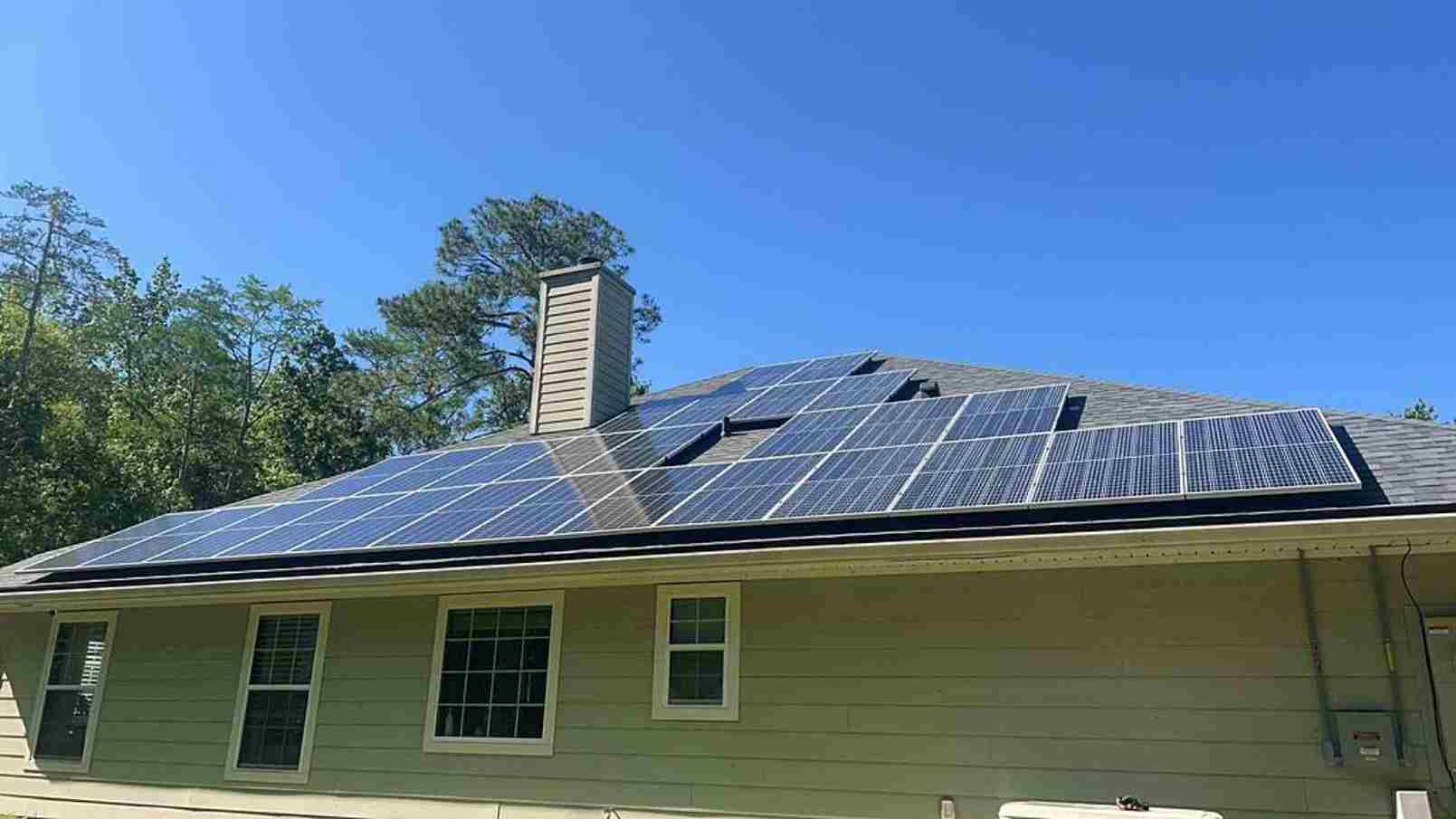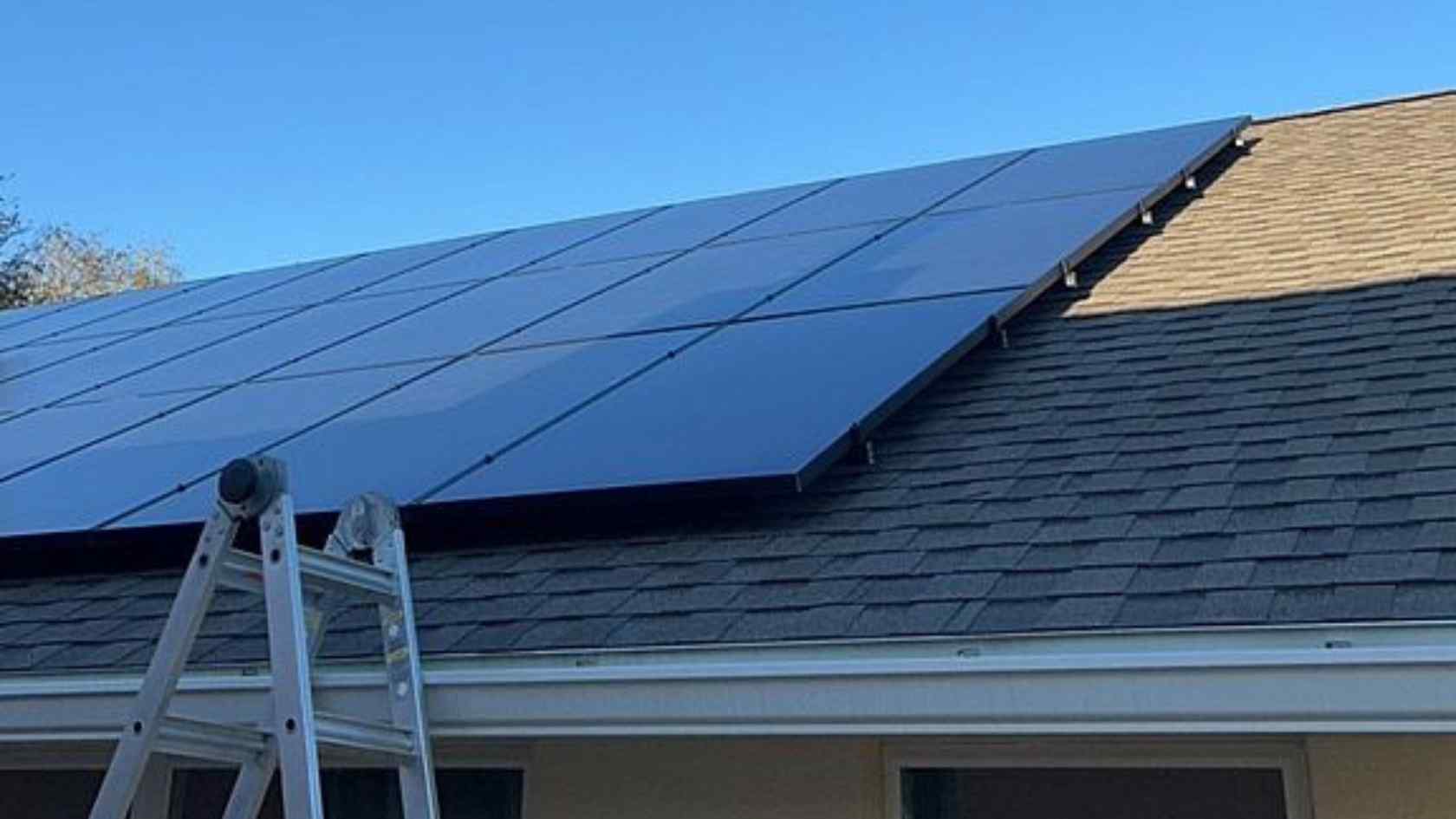When deciding to switch to solar, homeowners often have a lot of questions, especially when it comes to what solar panel equipment is needed. The one that comes up the most is “can you install solar panels without a battery?”.
The short answer is yes; rooftop solar panels can power a home without a battery backup. However, there are some situations where having a backup battery is needed and may even be required.
How do you know if your home needs a solar battery? That largely depends on the type of solar system you have installed and if it is connected to your local energy grid. Read on to learn the pros and cons of each type of system and how scheduling a solar energy audit can help you decide which is right for your home!
Related: Is your home a good fit for solar panels?
Off-Grid Solar System
An off-grid solar system is likely what most people think of when switching to solar. Homes are powered by solar and fully independent from the local energy grid. During the day, the home draws energy from solar panels and then uses energy stored in the solar batteries at night or on cloudy days. This type of system is ideal for remote or isolated areas without access to an alternative energy source.
Grid-Tied Solar System – Solar Panels Without A Battery
A Grid-tied solar system works as exactly as it sounds. A home is connected to the energy grid, which serves as the backup battery. During the day, the home draws power from the solar panels and then switches to using energy from the grid at night. Without a battery, this system is dependent on the energy grid and may only work for a short time during an outage.
One of the biggest benefits of a grid-tied solar system is the ability to sell extra energy back to the utility company. This is referred to as net metering. Energy companies buy extra power sent to the grid in the form of energy credits. These energy credits offset any monthly charges for using grid power at night or on cloudy days. In most cases, a homeowner will have a $0 energy bill once the energy credits are applied.
Grid-tied systems are also less expensive. Batteries alone add tens of thousands of dollars to solar project costs and require extra panels to keep those batteries full.
Related: Solar tax credits make switching more affordable
Hybrid Solar System
Hybrid solar systems allow homes to draw energy from batteries, the energy grid, or a combination of both. These systems are ideal for people who:
- Live in an isolated area or have an unreliable power grid
- Live in an area prone to natural disasters
A hybrid system works similarly to an off-grid system. However, a connection to the grid provides additional stability, especially on cloudy days. Should your home need more energy than what is stored, you will not experience any disruption in power to your home.
With a hybrid system, a home will need additional solar panels to keep the batteries full and operational. This can mean additional costs and challenges for smaller homes that may not have enough space for the additional panels.
Which System Is Right For Your Home?
Before deciding which type of solar panel system is best for your home it’s best to know what your energy needs are and if your home is a good fit. The experts at Raze Solar can compile all this information and more to help you make the best decision and determine if you should install home solar panels without a battery.
Have questions or need more information? The experts at Raze Solar are here to help! Call or text (904) 595-6835, schedule a free solar panel quote online, or view our services areas and learn how to make the switch.
Learn more about our solar energy company and see recent projects by following us on Facebook and Instagram.

